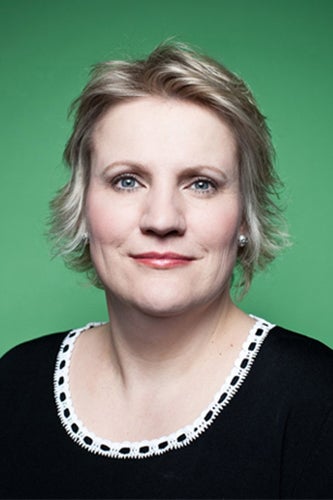Nurses face ‘moral distress’ as they struggle to do their jobs during COVID-19: U of T researchers
University of Toronto researchers have identified a number of sources of “moral distress” for nurses during the COVID-19 pandemic – and they’re developing recommendations to help address the problem.
The causes of distress range from the heart-wrenching experience of watching patients die without family members present, to, ironically, public displays of support for health-care workers, according to the early findings of the researchers’ study.
The study – which has yet to be published – also suggests many nurses were fearful of infecting others during the early days of the pandemic when protective gear was in short supply. Others felt unprepared or not sufficiently informed about how to provide care for COVID-19 patients as hospitals scrambled to create capacity in ICU wards.

“This is important because, long-term, moral distress can be really damaging and has the potential to have a real impact on quality of care,” says Elizabeth Peter, a professor at the Lawrence S. Bloomberg Faculty of Nursing who is leading the study. “We have to be thinking about what we are exposing nurses to repetitively in terms of their psychological health.
“Who will they be a year from now? Will they even want to stay in nursing?”
Peter’s team includes: Shan Mohammed, a lecturer at U of T Nursing, Adjunct Professor Jane MacIver, PhD students Tieghan Killackey and Caroline Variath and Conor Chiasson, an undergraduate student in the Faculty of Arts & Science. The study is backed by the university’s Toronto Covid-19 Action Fund supporting high-impact research that contributes to the global fight against SARS-CoV-2.
Peter and her research team conducted virtual interviews with close to 30 registered nurses from across the health-care spectrum, including critical care, pediatrics and obstetrics, to ensure a diverse range of perspectives.
Those who worked as community health nurses identified different sources of distress stemming from a lack of resources inhibiting their ability to provide appropriate support to their clients, many of whom experience homelessness.
Peter says another common source of concern was the sudden media focus on nurses being “heroes.”
“There was a real sense of ambivalence around being called a hero from our participants, and the majority of the nurses we spoke with were reluctant to embrace this narrative,” says Peter.
Pot banging and clapping sessions are, on the surface, kind gestures but many of the nurses surveyed said that that they wondered if anyone was going to recognize and value nurses once the pandemic was over.
“There were a lot of mixed feelings about this from our participants, especially those that have been working with infectious diseases for a while, because much of their work is unchanged.”
While there has been previous research done on sources of moral distress in health-care workers, there has not yet been a cohesive set of recommendations to mitigate them, which is what makes Peter’s study so important for nurses.
However, she cautions that there is no quick intervention to deal with moral distress.
“It is not as simple as meditating for five minutes. A lot of the changes are structural and harder to realize in practice,” says Peter. “There are no magic bullets.”
Peter says health-care leaders play a key role in helping to mitigate distress among nurses.
“Seeing their leaders physically visit ICU units to understand what nurses are experiencing was something study participants said was especially helpful in reducing distress as is the support they are receiving from their colleagues,” Peter says.
Some of the researchers’ key recommendations include engaging nurses in collective and transparent decision-making, providing educational opportunities related to COVID-19, offering professional mental health support and recognizing nurses when forming policies so distress can be acted upon.
Peter’s study will soon enter its second phase, collecting qualitative data from nurses working in long-term care throughout the second wave of the pandemic. Peter is hoping a policy brief aimed at decision-makers will help change practices for nurses quickly and in a meaningful way.
“Moral distress has always been around, but it is currently affecting our health-care workers with a constancy and magnitude we have not seen before,” says Peter. “It is why these recommendations are needed to help not only our nurses but ultimately patient care.”

